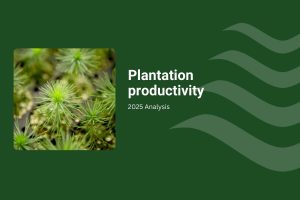A recent FWPA-managed research program aims to improve the productivity and profitability of forestry and other primary producers in Australia, through the development of new approaches to the sustainable management of soil, water and other natural assets.
It’s all part of a commitment to what’s known as natural capital accounting.
Natural capital accounting essentially means that the stock of renewable and non-renewable resources (or ‘natural capital’) used to provide products and services, is identified, assessed, measured, recorded and valued. The research has adopted the principles of environmental and economic accounting developed by the UN’s System of Environmental and Economic Accounts (SEEA).
The research aims to support the broader adoption of natural capital accounting practices by primary industries, through improved understanding of the objectives and benefits associated with natural capital accounting, and helping guide the development of future efforts.
Dr Anthony O’Grady, Research Scientist at the CSIRO, who led the research, said the long-term financial sustainability of primary industries like forestry is dependent on prudent management of natural assets from which future wealth will be generated.
“Many forestry and other primary businesses are showing strong interest in better accounting for the natural capital they manage, as they realise that future profitability is tied to the ongoing supply underpinning ecosystem services,” Dr O’Grady said.
Forestry, like many primary industries, is highly dependent on underlying stocks of natural capital, while also generating many ecosystem services our society depends on. The climate and extreme weather events, in particular, have been identified as having potentially significant impacts on essential pools of natural capital in the future.
The forestry industry already collects information for reporting and certification purposes, and is therefore a custodian of existing data that can be used to develop natural capital accounts.
The research focused on the Green Triangle area and involved three years’ worth of discussions with a broad cross-section of representatives from primary industries. It provides recommendations for a basic set of environmental accounts.
The team identified a rage of value propositions for natural capital accounting including:
- Strengthening the environmental and sustainability credentials of the industry;
- Improving stakeholder communications, particularly with local communities and government, through standardised and internationally agreed environmental reporting;
- Potentially improving business performance through better finance or access to emerging environmental markets.
Additional benefits to the forestry industry include driving efficiencies and improved communication with stakeholders, particularly the broader community and policy makers.
“It’s hoped the research will lead to an improved understanding of the objectives and value proposition for natural capital accounting, and the importance of accounting for the inputs of natural capital into production, while highlighting a broader range of benefits related to reporting environmental performance, management and risk disclosure,” said Dr O’Grady.
The work provides a framework for standardised, industry-specific accounting, and a pathway for individual enterprises to trial natural capital accounting. It also provides a methodology and foundation for the future valuation of natural capital stocks.



